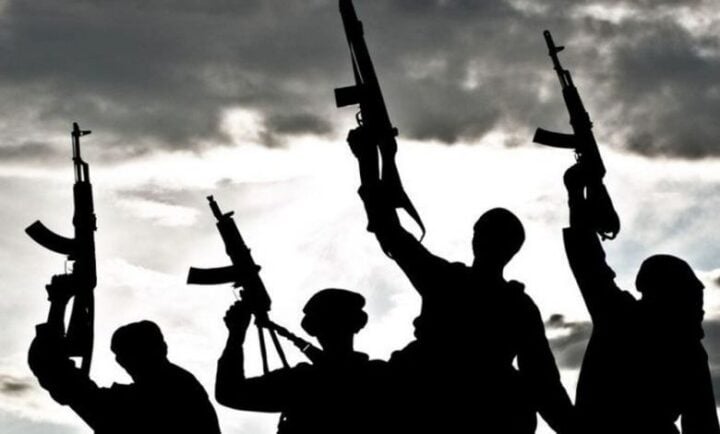BY MUHAMMED I. SAHEED
Terrorism constitutes a global threat, and Nigeria, unfortunately, is one of the countries that faces a high level of terrorism.
While attempts to combat terrorism and violent extremism in the northeast of Nigeria continue, policy attention has been shifted towards many sources of terrorism financing, which have continued to fuel terrorism and other violent conflicts in Nigeria.
Without a doubt, terrorism finance is the backbone of terrorist groups as funds go into buying weapons, recruiting militants, and operating terrorist organisations. Just as the United Nations Office on Drugs and Crime (UNODC) puts it, “terrorist groups need money to sustain themselves and carry out terrorist acts”.
Advertisement
Terrorist financing in this context, encompasses the means and methods used by terrorist organisations to finance their activities, leveraging funds from legitimate sources such as business profits and charitable organisations, or illegal activities including trafficking in weapons, drugs or people, or kidnapping.
It is worthy of note that poor governance and corruption drive terrorism and violent extremism, which are among the observed cases in the northeast of Nigeria.
Also, the religious dimension, which has to do with extremism, hard beliefs and ideologies held and taught by some religious leaders has led to insurgency in the northeast.
Advertisement
The consequences of terrorism have continued to aggravate extreme poverty rates among Nigerians, internal displacement, and devastated livelihoods, just as opportunities for broader growth, development and prosperity are destroyed.
The increasing concerns about financing terrorist activities within the country have triggered unfavourable indices from the 2023 Global Terrorism Index (GTI), which ranks Nigeria eighth among the top ten countries with the highest levels of terrorism in the world.
In March 2024, the federal government named 15 entities including nine individuals and six Bureau De Change operators and firms that are said to be involved in terrorism financing has highlighted the pressing issue of terrorism and terrorist financing in the country.
As poor awareness at community levels hamper collective monitoring and timely response to warning signals of potential terrorist activities and violent extremism, the security situation in Nigeria has become increasingly complex and uncertain, as various non-state armed groups have emerged and consolidated coercive power to terrorise the population in Nigeria, as evident in the northeast and other parts of the country.
Advertisement
Moreover, weak security and surveillance at national borders contribute to the issue of terrorism financing in Nigeria. This lack of control and monitoring allows terrorists, as well as small arms and light weapons, to infiltrate the country quickly. This stresses the imperative of strengthening security measures at borders by Nigerian authorities to prevent the inflow of funds and resources for terrorist activities.
It has been observed in recent engagements by the Civil Society Legislative Advocacy Centre (CISLAC) financed by GIABA-ECOWAS that poor collaboration on the part of law enforcement and regulatory agencies has contributed to the problem of terrorism financing in Nigeria. Effective information sharing is crucial in combating terrorism financing, yet there seems to be a lack of coordination among various agencies and institutions.
More importantly, the capacity gaps within law enforcement and regulatory agencies also hamper efforts to address the challenge of terrorism financing effectively. These institutions must be adequately equipped and trained to detect and disrupt the financial networks of terrorist organisations.
The financial sector has been exploited for terrorism financing. The use of the financial sector indicates the increasing capabilities of some terrorist groups. These include the Bureau de Change operators, Point of Sale (POS) devices, wire transfers, and Designated Non-Financial Businesses and Professions, among other enabling platforms expanding the scope and depth of terrorism financing.
Advertisement
It is worrisome that illegal money exchangers including Bureau De Change have been featured in several terrorism financing investigations. The 2022 National Inherent Risk Assessment of Terrorism Financing report reveals that between 2019 and 2022, about 19 companies were linked to illegal money exchangers who have used their companies to comingle funds considered to be linked to terrorism financing.
Furthermore, while the banking sector in particular has in recent times been subjected to strict regulations that intend to increase transparency and identify suspicious transactions; however, studies illustrate that the banking sector continues to offer opportunities for terrorism financing; as current measures employed by banks have proven ineffective due to the knowledge gap that surrounds concrete methods terrorist financiers employ.
Advertisement
Muhammed, a communications specialist and policy analyst, writes from Abuja. He can be reached via [email protected].
Advertisement
Views expressed by contributors are strictly personal and not of TheCable.
Add a comment






